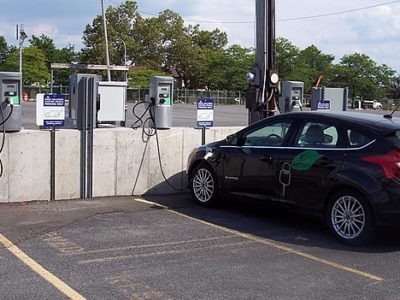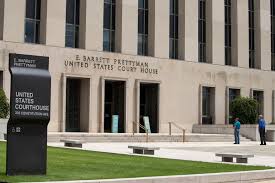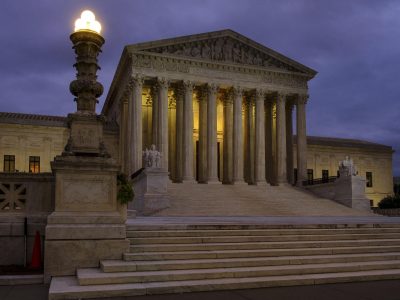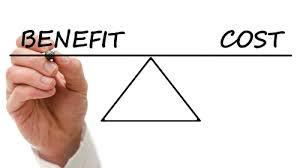CAFE standards
Does Federal Law Still Preempt State Standards Relating to Fuel Efficiency?
The answer may depend on what being “in effect” means.
If a tree falls in the forest but no one hears it, does it still make a sound? If a law hasn’t been formally repealed but can be violated with complete impunity, is it still in effect? This matters because federal law preempts state fuel efficiency standards if, but only if, a federal standard is “in effect.” Congress just eliminated any penalty for violating the federqal standards. Which means at best they have only a kind of ghostly existence, but no substance to speak of.
CONTINUE READINGSix Sleeper Proposals in Project 2025
Project 2025 isn’t just its headline proposals. It’s a thorough, detailed attack on environmental protection.
Project 2025’s proposals involve reduced protection for endangered species, eliminating energy efficiency rules, blocking new transmission lines, changing electricity regulation to favor fossil fuels, weakening air pollution rules, and encouraging sale of gas guzzlers. There’s some pious talk about protecting the environment, but every proposal calls for weakening environmental protections.
CONTINUE READINGFour EV Trends
One of these things is not like the others.
The automotive world is changing quickly. Most of the trends are mutually reinforcing. But one points in the opposite direction. The first and most obvious trend is the rise of EVs. In the twenty years since Tesla arrived, EVs have gone from 0.2% of new cars to 13%, and Bloomberg predicts that this figure will …
Continue reading “Four EV Trends”
CONTINUE READINGReading the Tea Leaves: Biden’s and California’s Vehicle Regs at the D.C. Circuit
A leading environmental lawyer gives his perspective.
Transportation is now the source of 28% of U.S. greenhouse gas emissions, more than the electric power sector. The transportation sector is also a substantial source of nitrogen oxides and particulates, both of which are dangerous to human health. The Biden Administration has taken important regulatory actions bearing on these problems, with others in the …
Continue reading “Reading the Tea Leaves: Biden’s and California’s Vehicle Regs at the D.C. Circuit”
CONTINUE READINGA Celebration of Energy Efficiency?
A different perspective on a familiar holiday.
When you think about it, the Hanukkah story is, in a funny way, about a miraculous increase in energy efficiency. An energy resource (olive oil) that was supposed to supply only enough energy for one night’s worth of light was able to supply light for eight nights. That’s an eightfold improvement in energy efficiency, akin …
Continue reading “A Celebration of Energy Efficiency?”
CONTINUE READINGClimate Change and the Major Question Doctrine
Just because a regulation involves climate change, that doesn’t make it a major question.
Red State AGs are preparing to go to town with the West Virginia case. They seem to think that everything involving climate change automatically becomes a major question. That’s simply wrong. The doctrine is more nuanced. Recall that the Supreme Court struck down OSHA’s vaccine mandate, essentially on major questions grounds, but the majority found …
Continue reading “Climate Change and the Major Question Doctrine”
CONTINUE READING1990: The Year the Courts Discovered Climate Change
Cases were few, but one judge was years ahead of her time.
In an earlier post, I tried to figure out when the legal academy first discovered climate changes. As it turns out, it was almost a decade later when the federal courts took notice. Those first climate change cases shed light on how new issues get litigated and how courts respond to new science. My research …
Continue reading “1990: The Year the Courts Discovered Climate Change”
CONTINUE READINGFighting Global Warming in a Chilly Judicial Climate
A 6-3 conservative court is bad news for climate action. Here’s a threat assessment.
With Romney’s announcement this morning that he would support consideration of a nominee before the election, it now seems virtually certain that Trump will be able to appoint a sixth conservative Justice. How will that affect future climate policy? Here is a preliminary threat assessment. The answer varies, depending on what policies we’re talking about. …
Continue reading “Fighting Global Warming in a Chilly Judicial Climate”
CONTINUE READINGEnvironmentalists v. Cost-Benefit Analysis: What Does the Future Hold?
For now, at least, environmentalists and economists are aligned in criticizing Trump’s rollbacks. Will this alliance last?
If it’s true that “the enemy of my enemy is my friend,” environmentalists might want to take another look at cost-benefit analysis. The Trump Administration is certainly doing its best to gut economic analysis of its rollbacks. Both economists and environmentalists are resisting. Is this an alliance of convenience or will it be the start …
Continue reading “Environmentalists v. Cost-Benefit Analysis: What Does the Future Hold?”
CONTINUE READINGLessons from the DACA Ruling
The Court’s ruling could have important implications for environmental cases.
The Supreme Court’s ruling in Department of Homeland Security v. UC Regents was great news for 700,000 “Dreamers” who would otherwise face deportation. It also has important implications for administrative law — and for environmental law cases in particular. Here are three main takeaways. Requiring Reasoned Explanation. Chief Justice John Roberts reinforced the principle that …
Continue reading “Lessons from the DACA Ruling”
CONTINUE READING











